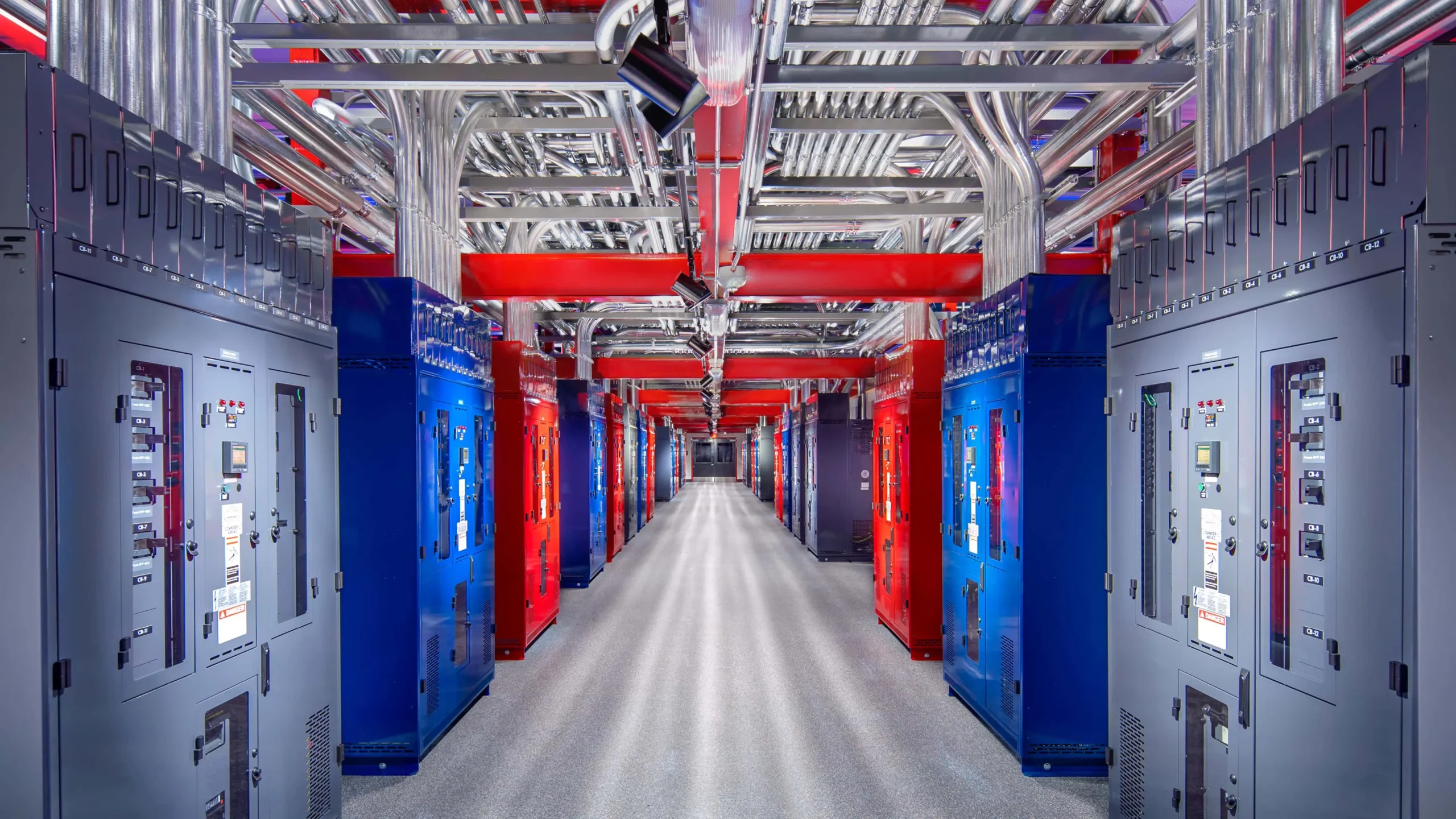What is a Data Center?
A data center is a facility dedicated to house critical IT infrastructure, allowing businesses to build, run, and deliver applications and services while diligently storing and managing associated data. It’s not just a room filled with servers, a modern data center is a dynamic ecosystem designed to ensure smooth operations, robust connectivity, and reliable performance for organizations of different sizes. Whether it’s a physical building or a network of remote facilities, data centers are the spine for essential digital services, from email and file sharing to advanced applications like artificial intelligence and machine learning.
The Critical Role of Data Centers
Data centers are the backbone of modern organizations, powering nearly every aspect of daily operations with unmatched reliability and efficiency. They serve as the foundation for a wide range of essential functions, from hosting shared email servers and productivity applications to supporting e-commerce platforms, video streaming, and advanced technologies like artificial intelligence and machine learning. Beyond mere storage, data centers enable pristine collaboration, remote work, financial transactions, and supply chain management, corroborating businesses to stay connected and operational. By processing and managing vast amounts of data, they empower organizations to innovate, make informed decisions, and deliver services to customers across the globe.
Equally important, data centers act as secure vaults for sensitive information, offering resilient protection through multiple layers of physical and cybersecurity measures. These facilities are designed to guard confidential data from any intrusions, with features like advanced encryption and access controls. Additionally, data centers are built to be persistent and reliable, incorporating disaster recovery systems and redundancy to maintain uptime during power outages or other disruptions. This combination of operational support and security makes data centers indispensable, ensuring organizations can operate smoothly, protect critical assets, and adapt to challenges in an increasingly digital world.
Benefits of a Modern Data Center
Here are the key benefits of using a high-quality data center, each explained briefly:
- Increased Data Security: Employs advanced access controls, surveillance, and fire detection systems, plus disaster recovery, to protect data from physical and cyber threats, surpassing typical on-site server security.
- Constant Data Reliability and Availability: Features redundant systems and backup power to ensure continuous data access, minimizing downtime from hardware failures or outages.
- Easily Scalable and Flexibility: Offers adaptable storage and computing resources, allowing businesses to scale easily without major investments or infrastructure upgrades.
- Provides Cost Efficiency: Reduces expenses by eliminating on-site server maintenance, cooling systems, and dedicated IT staff, leveraging economies of scale for affordable high-end infrastructure.
- Energy Efficiency: Utilizes advanced cooling, server virtualization, and optimized layouts to lower power usage, reducing energy costs and environmental impact.
- Compliance and Regulatory Support: Adheres to standards like HIPAA or GDPR, ensuring data practices meet legal requirements and reducing non-compliance risks.
- Focus on Core Competencies: Frees IT staff from routine maintenance, allowing focus on strategic projects to boost innovation and competitiveness.
- Geographical Redundancy: Replicates data across multiple locations to protect against regional disasters, enhancing data resilience.
- Access to Skilled IT Professionals: Provides expertise from specialized IT teams, eliminating the need for in-house training or hiring.
- 24/7 Monitoring and Support: Offers round-the-clock monitoring and technical support to quickly address issues, ensuring minimal operational disruptions.
Key Applications of Data Centers in the AI Era
Enterprise Data
Data centers are the backbone of modern enterprises, enabling efficient management, storage, and analysis of vast data volumes in a secure, centralized environment. They provide scalability to handle growing data needs, robust security to protect sensitive information, and redundancy to ensure uninterrupted operations. By streamlining data processes and reducing costs, data centers empower businesses to adapt to evolving demands, drive innovation, and maintain a competitive edge in today’s data-driven landscape.
Artificial Intelligence (AI)
Data centers are critical for AI, delivering the immense computational power and storage required to train and deploy complex models. They process vast datasets to fuel AI applications, from answering queries to powering machine learning algorithms. Without the high-performance infrastructure of data centers, the processing demands of AI would overwhelm standard systems, making them essential for the scalability, efficiency, and rapid development of AI-driven solutions across industries.
Edge Computing
Edge data centers bring computing power closer to users and devices, acting as vital connection points for networks and enabling faster data processing for cloud-driven tasks like machine learning. Located near data sources, they leverage edge caching and modular micro-data centers to reduce latency and enhance response times. By transforming raw data into actionable insights, edge data centers support real-time applications, from cybersecurity to infrastructure performance monitoring.
Disaster Recovery
Data centers are essential for disaster recovery, safeguarding businesses against disruptions like ransomware attacks or natural disasters. Equipped with robust redundancy and backup systems, they minimize downtime, which can lead to income loss, client churn, or reputational damage. By ensuring data integrity and service continuity, data centers provide a critical safety net, enabling organizations—especially small to medium-sized businesses—to recover swiftly and maintain operations under adverse conditions.
Telecommunications
Data centers empower telecommunications providers to scale IT resources rapidly, supporting seamless communication during demand surges or technological advancements like 5G and AI. They offer the flexibility to adapt to new services and maintain reliability during peak usage, ensuring responsive network performance. By providing robust infrastructure, data centers enable telecoms to deliver consistent, high-quality connectivity, meeting the evolving needs of users and businesses alike.
Conclusion
Data centers are the cornerstone of modern digital infrastructure, powering enterprise operations, AI innovation, edge computing, disaster recovery, and telecommunications. By offering scalability, robust security, and energy-efficient solutions, they enable businesses to manage vast data volumes, ensure operational continuity, and adapt to evolving technological demands. With benefits like cost efficiency, enhanced reliability, and compliance support, modern data centers empower organizations to focus on innovation and growth, solidifying their indispensable role in today’s data-driven world.

